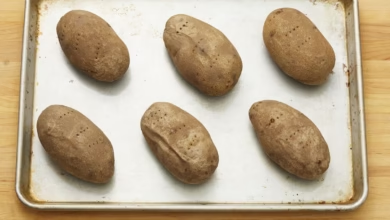6 Common Turkey Mistakes and How to Avoid Them on Thanksgiving
Read this before the big feast.

6 Common Turkey Mistakes and How to Avoid Them on Thanksgiving
Cooking Thanksgiving dinner can be overwhelming, especially if it’s your first time hosting. You need to decide on side dishes, desserts, make a shopping list, and organize a cooking schedule. But the most intimidating part of any Thanksgiving meal is definitely preparing the turkey.
Before you get too stressed, know that roasting a turkey isn’t as complicated as it might seem. With the right knowledge, you can easily pull it off! If you’re in charge of the bird this year, setting yourself up for success begins with avoiding the common turkey mistakes. Avoid these and you’ll be on your way to a perfect turkey.
Buying the Wrong Size Turkey
You never want to end up with too little turkey. A safe rule is to plan for about 1 1/4 pounds of turkey per guest. If you’ve already bought your turkey and your guest list keeps growing, don’t panic! Simply purchase a bone-in turkey breast and roast it alongside your main turkey. There will be more than enough, and if you have leftovers, that’s a bonus! Leftover turkey can be used in plenty of delicious recipes.
Not Giving the Turkey Enough Time to Defrost
Thawing a turkey takes much longer than you might expect. The best way to thaw is in the refrigerator, allowing 24 hours for every 4 to 5 pounds of turkey. For example, a 20-pound turkey needs at least four days to thaw. If you’re planning to brine your bird, make sure to allow even more time.
Washing the Turkey
While your grandmother may have rinsed her turkey before roasting it, you shouldn’t. The USDA recommends against washing your turkey because it can spread harmful bacteria across your kitchen. Cooking at high temperatures will kill any bacteria, so there’s no need to wash it. The only cleaning step you should take is removing the giblets!
Not Patting the Turkey Dry
The secret to achieving crisp, golden turkey skin is to pat the bird completely dry before applying oil or butter, seasoning, and roasting it. If you skip this step, you’ll end up with soggy, disappointing skin.
Skipping the Seasoning
A bland turkey is no one’s idea of a great Thanksgiving meal. To avoid this, make sure to season your turkey well. There are various ways to season it: you can brine it, rub it with a flavorful turkey seasoning, inject it with marinade, or even cover it with compound butter for extra richness.
Avoiding a Meat Thermometer
The worst mistake you can make is serving either undercooked or overcooked turkey. A perfectly cooked turkey should register 165 degrees in the thickest part of the thigh (be sure to avoid touching the bone). Invest in a good meat thermometer to guarantee that your turkey is cooked just right. Meat thermometers are affordable and very useful for all types of meats. Be sure to ignore those pop-up thermometers that often come with store-bought turkeys—they are unreliable and often faulty.





